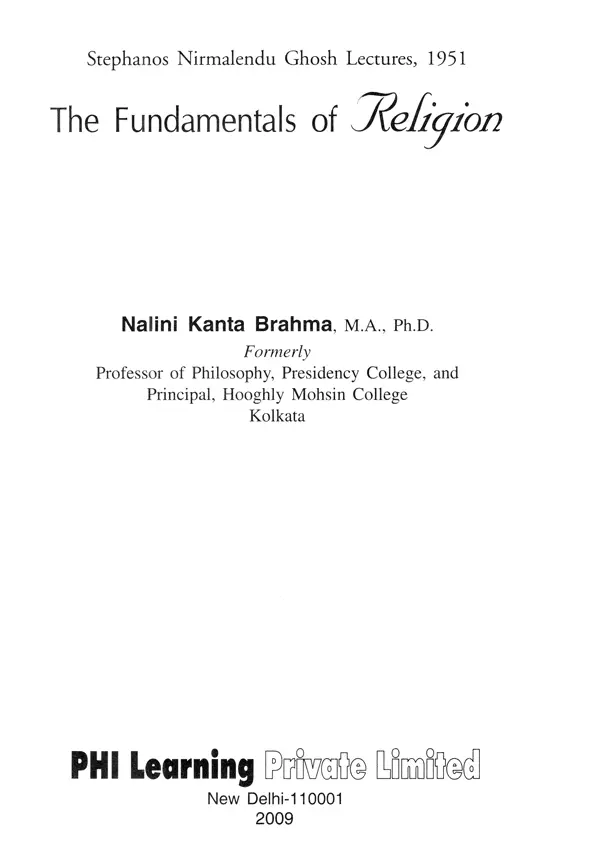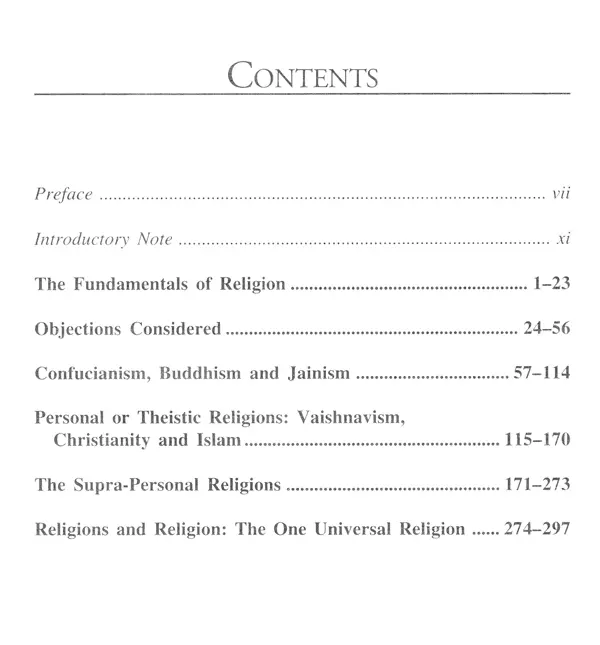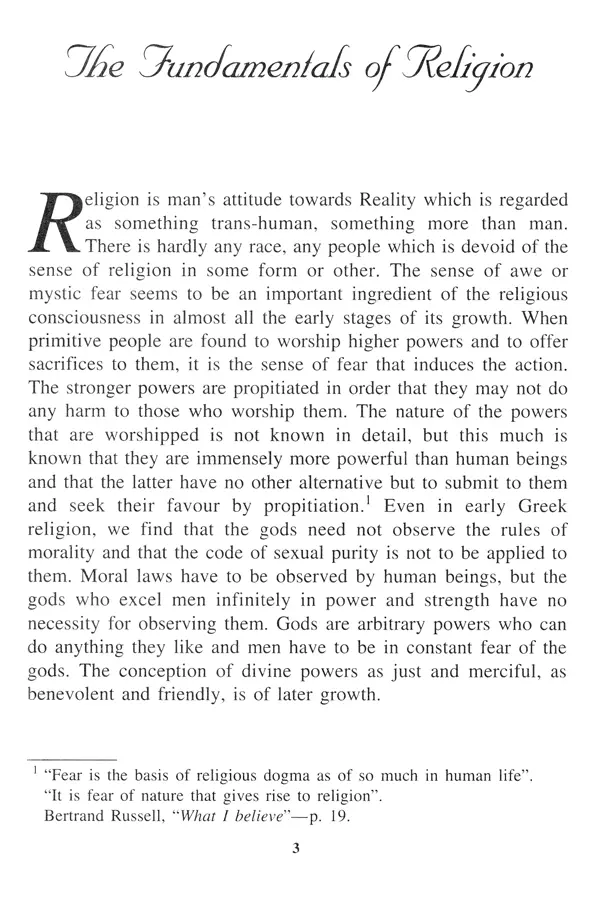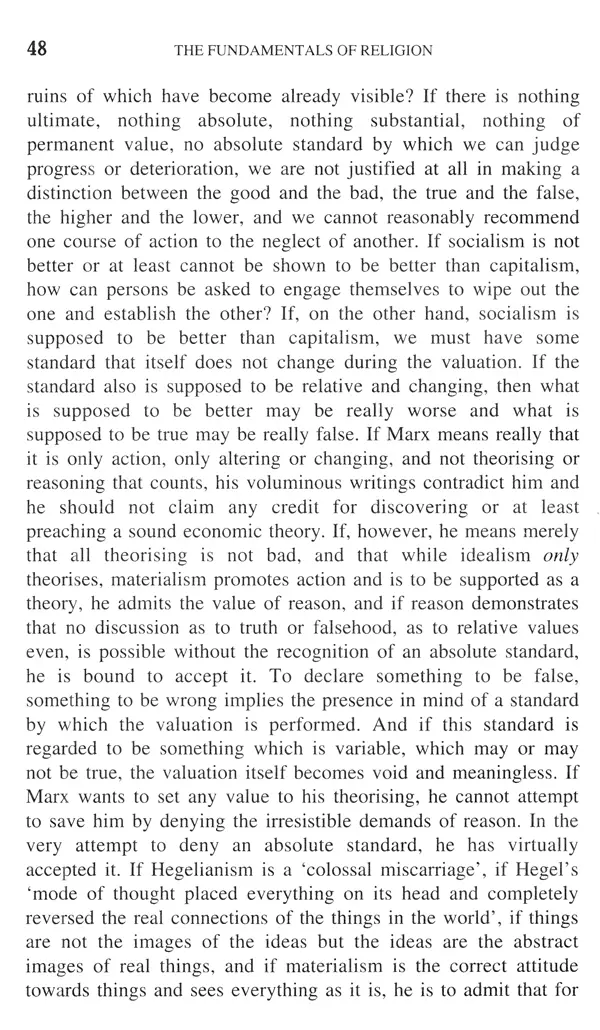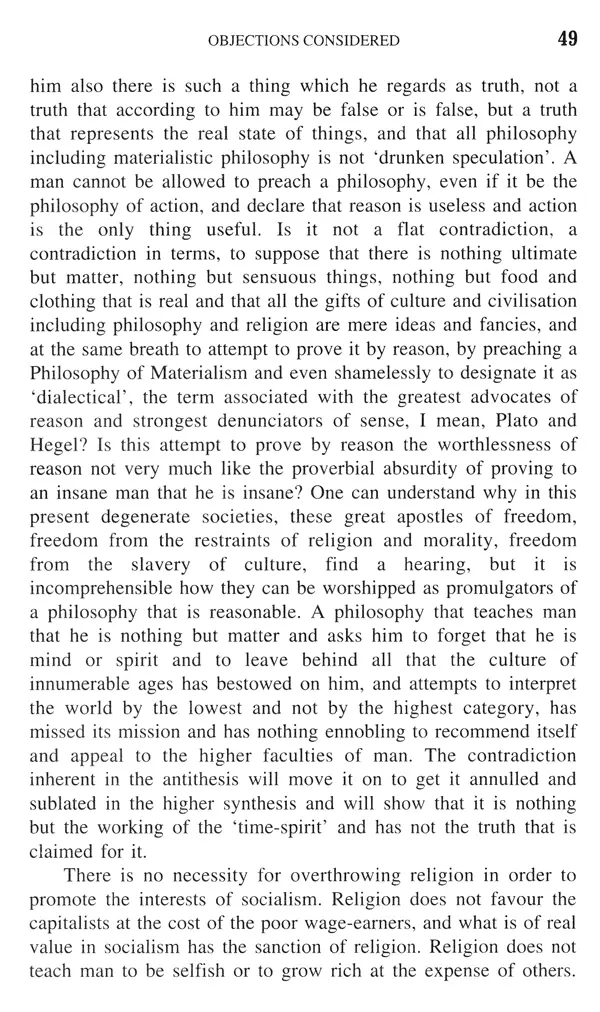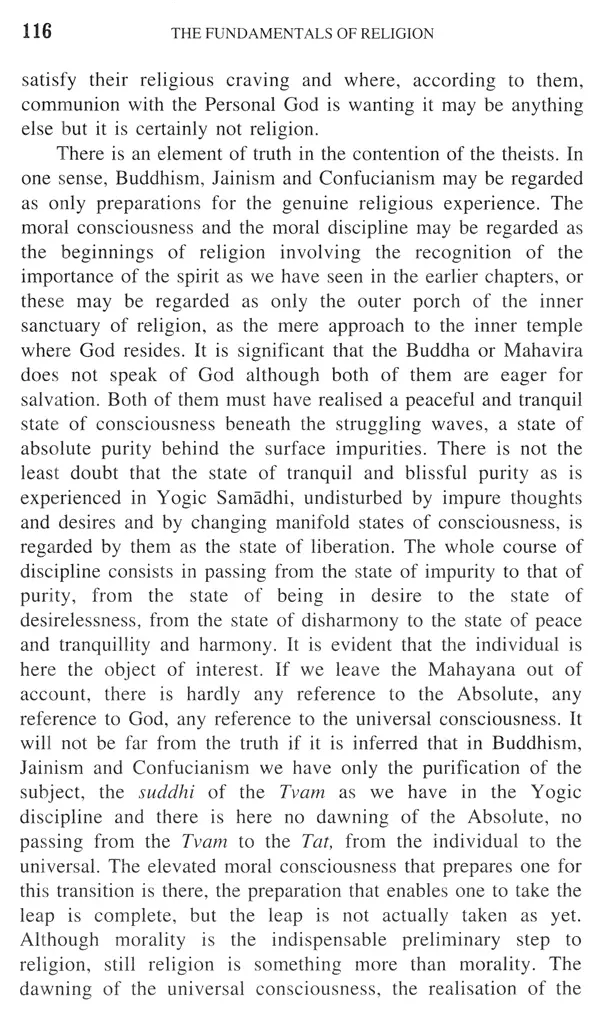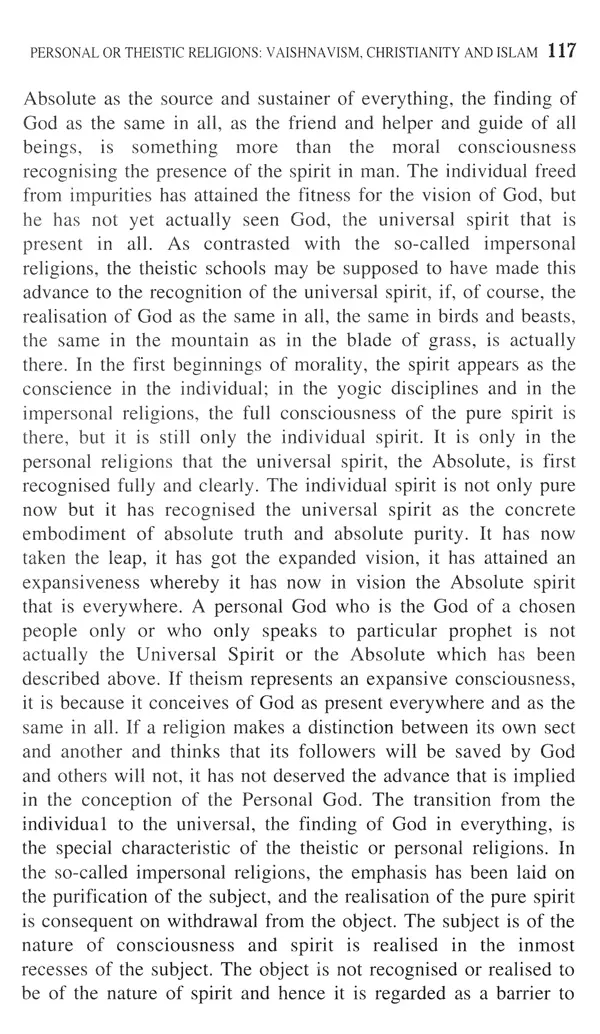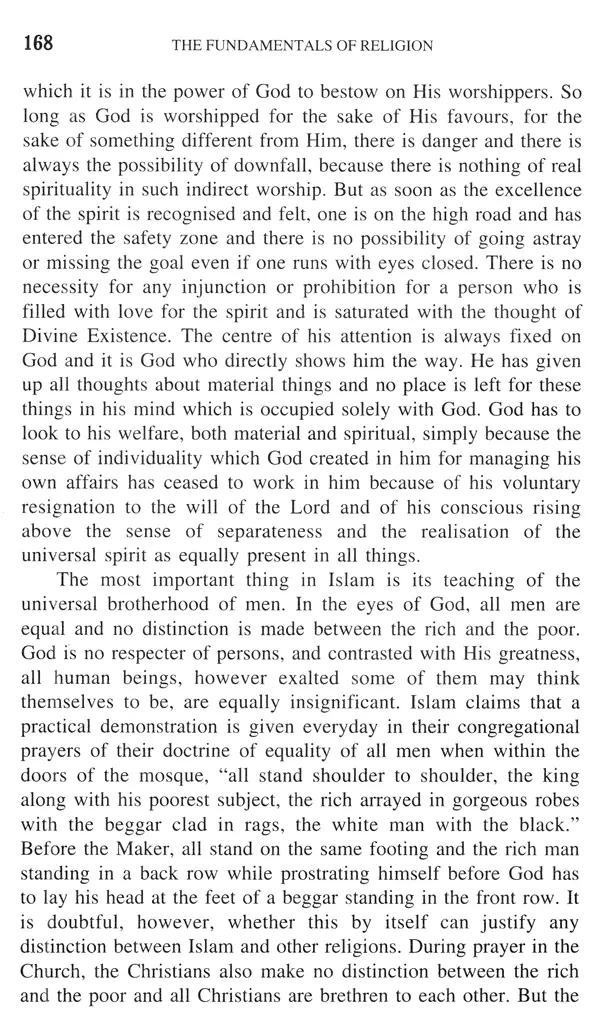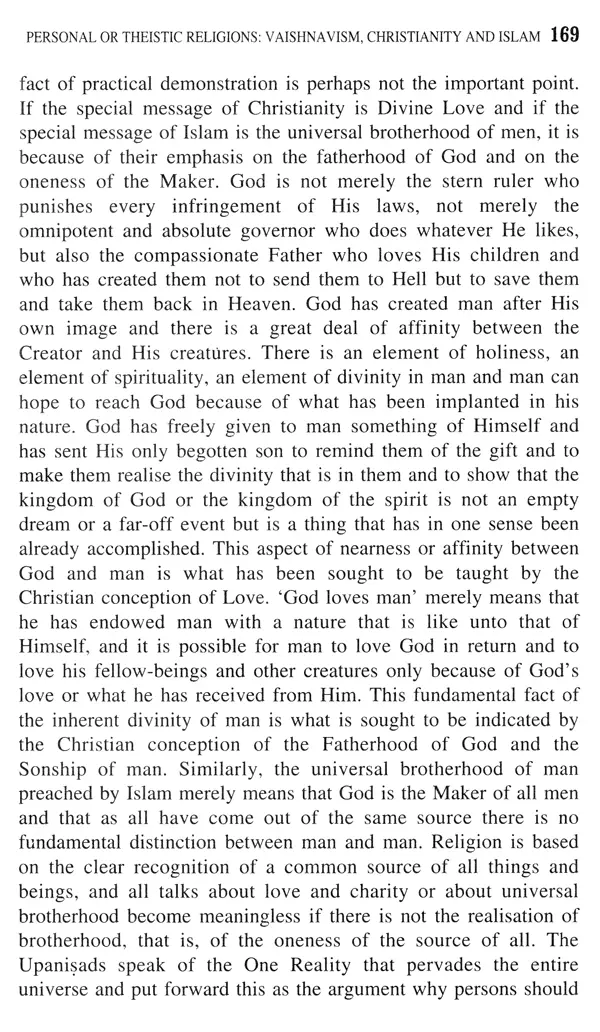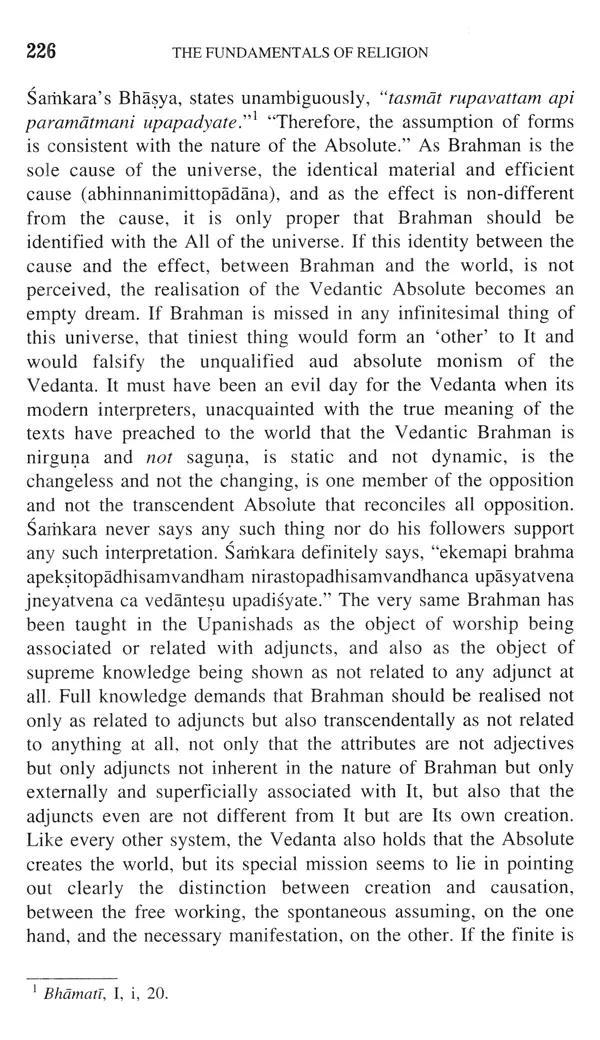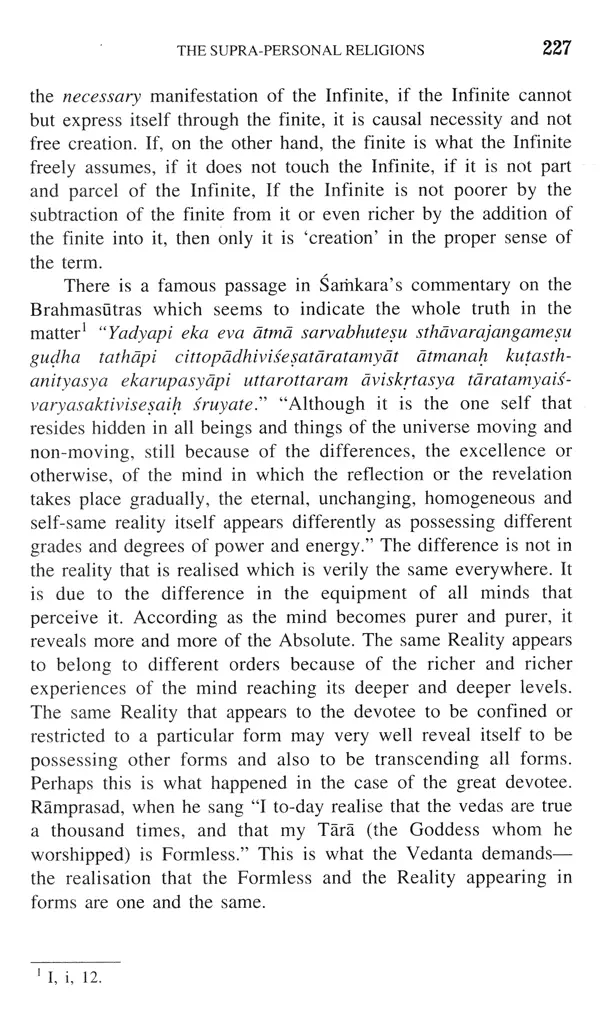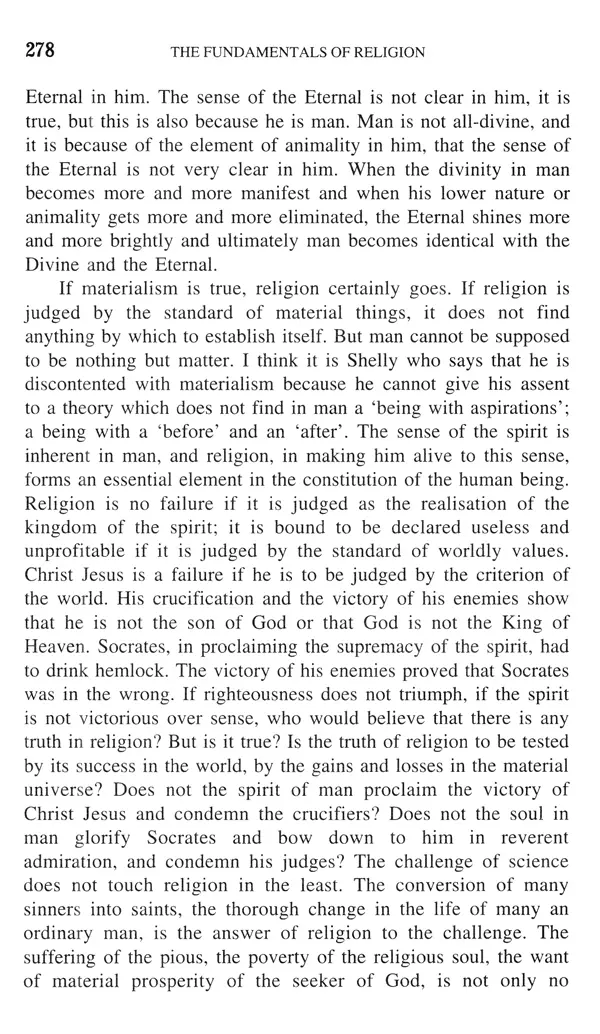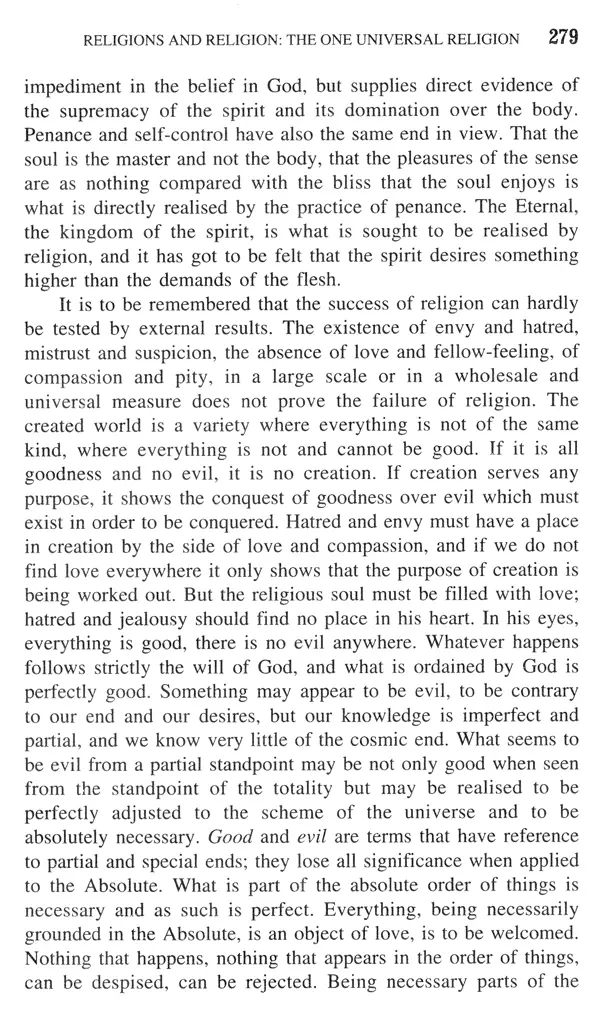
The Fundamentals of Religion (Stephanos Nirmalendu Ghosh Lectures, 1951)
Book Specification
| Item Code: | UBF028 |
| Author: | Nalini Kanta Brahma |
| Publisher: | PHI Learning Private Limited |
| Language: | English |
| Edition: | 2009 |
| ISBN: | 9788120333031 |
| Pages: | 305 |
| Cover: | HARDCOVER |
| Other Details | 9.00 X 6.00 inch |
| Weight | 520 gm |
Book Description
today in different parts of the world fierce feuds and strifes. Religious fanaticism and fundamentalism contribute in a substantial way to such strifes and conflicts among people. We also find a large number of people are steeped in superstitions, irrational beliefs, and indulge in mere ritualism Where true religion prevails, such fanaticism and fundamentalism find no place. A deep comparative study of world religions enables one to drive away all superstitions and fanaticism. For religion, in the true sense, is an abiding faith in the values of life, and God is the embodiment of all values. Religious experience accordingly implies the realisation of the Absolute.
What Prof. Nalini Kanta Brahma tries to do in this well-researched book, written in a clear and straight forward style, is to demonstrate the nobility and positive aspects of each religion he has discussed. He classifies religion into three categories. Impersonal-under which he brings in Buddhism, Jainism and Confucianism; Personal-in this category he describes Christianity, Islam and Vaishnavism; and Supra- personal-under which he analyzes Vedantism, Sufism, Taoism and the Johanine Gospel (the Gospel of St. John, one of the twelve disciples of Jesus Christ). The fundamentals of each religion are discussed with great clarity and genuine appreciation.
Knowing very well there are a large number of opponents to religion, the author vigorously defends the religious view. He successfully meets the various objections of Freud. Marx and Bertrand Russel, among others. For, he says, agnosticism, atheism and scepticism are based on a narrow and limited view of life.
Realisation of divinity by man is the universal characteristic of all religions, and the author contends that it should aptly be called the universal religion. This realisation of the divinity is so marked in the supra- personal religions and being a votary of such religions, he stresses that they are on a different level. If a study of this world religion is included in the course on comparative religion for students, it would certainly help towards dispelling erroneous notions about religion and drive away many superstitions, fanaticism and communalism, the last being a cancerous growth that eats into the very fabric of a nation.
Besides students of philosophy who study comparative religion as one of their subjects, all enlightened persons who have an abiding faith in religion should find reading this text an exhilarating and ennobling experience.
NALINI KANTA BRAHMA, MA, Ph.D., was formerly Professor of Philosophy, Presidency College, University of Calcutta and Principal, Hooghly Mohsin College, Kolkata. His book the Philosophy of Hindu Sadhana (now published by PHI Learning) was highly acclaimed by Dr. Sarvapalli Radhakrishnan, the former President of India and a great religious scholar. Similarly, his studies in "Brindaranyaka" was hailed by Shri Aurobindo.
I delivered the Stephanos Nirmalendu Ghosh Lectures for 1951 under the auspices of the University of Calcutta in 1952. Although I submitted the manuscripts within a week of the delivery of the lectures, the University Press has taken seven long years to publish the same. I do not exactly know the reasons for this unusual delay; in any case, I cannot hold myself responsible for it in any way.
When my book, "Philosophy of Hindu Sadhana" was published in 1932, I had a desire to deal with Buddhistic and Jaina Sadhana and also with other religions such as Christianity and Islam. It has always been my firm conviction that a comparative study of the great World Religions is the best way to understand the essence of religion and to get rid of superstition and fanaticism. I am immensely grateful to the authorities of the University of Calcutta for affording me an opportunity of realising my desire by appointing me Stephanos Nirmalendu Ghosh Lectures for 1951.
I have classified religions under three heads: (1) Impersonal, (2) Personal and (3) Supra-Personal. I have discussed Buddhism, Jainism and Confucianism under Impersonal Religions. Christianity, Islam and Vaisnavism have been placed under Personal Religions. Vedantism, Sufism, Taoism and the Johanine Gospel have been regarded as belonging to the head of Supra- Personal Religions. I have given the justification of my classification in the appropriate places and hence do not elaborate the point here.
Book's Contents and Sample Pages
